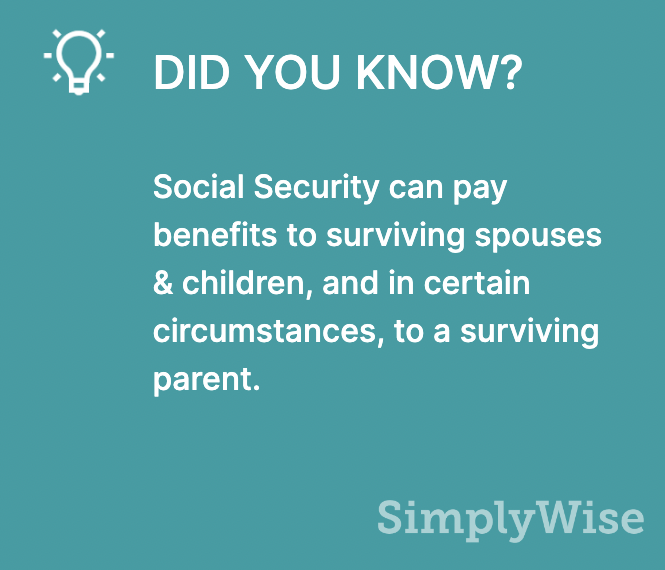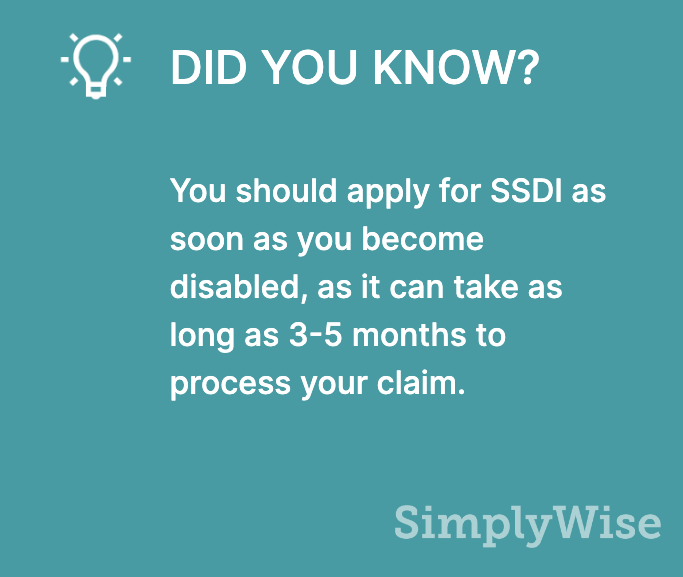
Whether you’ll rely primarily on Social Security benefits in retirement, or instead view benefits as a supplement to your retirement savings, understanding your eligibility and how to optimize the amount you receive is important. Here, we’ve listed 15 of the most important things you’ll need to know to do just that.
1. There are three types of Social Security benefits
When people think of Social Security, it’s usually earned benefits that come to mind.
Those are the benefits you personally earn through working. But Social Security also extends benefits in some cases to spouses, ex-spouses and children.
The three main types of Social Security retirement benefits are:
- Earned Benefits, or those based on your own earnings record.
- Spousal Benefits, or those based on your spouse’s or ex-spouse’s earnings record.
- Survivor Benefits, or those based on your deceased spouse’s earnings record.
2. You can optimize your earned benefits by waiting
While non-disabled people can begin collecting their Social Security benefits at 62, your monthly benefit amount will increase for every month that you wait until turning 70 years old. After that, the benefit does not increase. So if you can wait, you’ll optimize your benefit amount by waiting until age 70.
3. Don’t delay spousal benefits, however
There’s no advantage to waiting to collect spousal benefits after you reach your full retirement age like there is with your own benefits. They’re capped at 100%, so if you’re planning on taking them, go ahead and do so when you reach full retirement age.
4. Consider taking your spouse’s benefits instead of yours
If you are married, widowed or divorced, and earned less than your spouse, waiting to collect your own retirement benefit in order to maximize may be a bad choice. You may be better off taking your own retirement benefit at age 62, then switching to your spousal benefit starting at your full retirement age.

5. Yes, you can collect your ex’s benefits
If you’re divorced there are circumstances when you can collect spousal benefits based on your ex’s earnings. First, you must’ve been married at least 10 years before divorcing. Second, you must wait until your ex reaches age 62 in order to be able to claim their benefit. This means that if you are older than your ex and your ex was the higher earner, you’ll be able to collect your reduced retirement benefit early without being forced to take your spousal benefit early, which would mean that it would be permanently reduced. Also, you won’t be automatically deemed to be applying for spousal benefits when your ex reaches age 62. What’s relevant for the deeming is the age he/she was at the time you first apply for your retirement benefit.
6. You don’t have to be 62 to receive survivor benefits
To qualify for survivors benefits, you must be a:
- Widow or widower, age 60 or older (age 50 if you are disabled), who was married to the deceased for at least nine months
- Widow or widower at any age who is caring for a deceased worker’s child who is younger than age 16 or disabled
- Divorced spouse of the deceased (in some cases)
- Minor or disabled child
- Dependent parent of the deceased age 62 or older (in some cases)
- Stepchild or grandchild of the deceased (in some cases)
7. You can still work while receiving survivor benefits
You can still earn wages while you’re receiving survivor benefits, with a caveat: If you haven’t reached your full retirement age, some of your survivors benefits might be withheld. For 2020, $1 from your survivors benefits will be deducted for every $2 you earn above $18,240.
Note that only wages count, not pensions, interest, investment earnings or other government benefits.

8. Children can receive survivor benefits
Kids can receive their deceased parent’s Social Security benefits if they are unmarried and younger than 18, or up to 19 if still in high school. In addition, if the children are disabled, regardless of their age, and the disability occurred before they turned 22, they are eligible for survivors benefits. Adult children who are not disabled are not eligible to receive their parents’ Social Security benefits.
If you’re raising your deceased spouse or ex-spouse’s minor or disabled child, no matter how old you are, you also can receive survivors benefits. The child must be under age 16, unless he or she is disabled.
There are limits to how much one family can collect in Social Security benefits. These limits can get complicated, but usually a family maximum will be between 150 and 188% of the worker’s basic Social Security benefit. Benefits paid to a divorced spouse don’t count toward the family limit.
9. Adopted children, stepchildren & grandchildren can also qualify
Adopted children are treated the same as biological children under the survivors benefits guidelines. Stepchildren can receive survivors benefits if they were at least one-half supported by the stepparent who died.
Grandchildren can be eligible for benefits if their parents are disabled or have died and the grandchildren were living with the grandparent who died.
Parents, step parents or adoptive parents age 62 and older who are not eligible for their own benefits might be eligible for benefits if they were financially dependent on the deceased worker for at least half of their support. Marrying after the death might end your survivors benefits.
10. It’s possible to get benefits retroactively
In some cases, the Social Security Administration may pay survivor benefits retroactively. Those situations include:
- Spouses younger than full retirement age who file for survivor benefits within one month of a spouse or ex-spouse’s death can receive one month of retroactive benefits.
- Widows or widowers who wait to file after they reach full retirement age can receive up to six months of retroactive benefits back to the month they reached full retirement age.
- Disabled widows and widowers who file before age 61 are eligible for up to 12 months of retroactive survivor benefits.
11. Some parents are eligible to receive survivor benefits
Social Security can pay benefits to surviving spouses and children, but under certain circumstances, also to a surviving parent. Read Social Security’s fact sheet about Parent’s Benefits for the details.

12. Widow & widowers’ survivor benefits don’t always end with marriage
While a surviving spouse’s survivor benefits will end if they get remarried before age 60, benefits can continue for marriages after age 60.
13. Here’s when you can apply for Social Security Disability Insurance
Social Security Disability Insurance (SSDI) benefits are for people who are eligible for Social Security retirement benefits, but became disabled before they reached full retirement age. The number of work credits you need to qualify for SSDI depends on your age when you became disabled. The older you were, the more credits you’ll need.

You should apply for SSDI as soon as you become disabled so you don’t lose out on any benefits. It can take as long as three to five months to process your claim. Regardless, your benefits won’t begin until you’ve been disabled for six full months.
Before you apply for disability insurance, you should consult the Disability Starter Kit. The kit spells out the information you will need to apply and to prepare for your disability interview. Applying online may take between one to two hours.
14. You’ll need to gather some paperwork to apply for benefits
Before you apply for your retirement, disability or surivor benefits, you’ll want to round up the following information for yourself and/or your spouse or ex-spouse:
- Social Security card
- Your original birth certificate or other proof of birth
- Proof of U.S. citizenship or lawful alien status if you were not born in the U.S.
- A copy of your U.S. military service papers
- A copy of your W-2 form(s) and/or self-employment tax return for last year.
- If you’re married, the name, Social Security number and date of birth or age of your current spouse and any former spouse. You should also know the dates and places of marriage and dates of divorce or death (if applicable).
- The account number and routing number for your bank account
15. Your benefits could be taxed
About 40% of people who get Social Security have to pay federal taxes on their benefits, according to the Social Security Administration. This usually happens only if you have significant income, a pension, IRA or 401(k) withdrawals or other taxable income, in addition to your Social Security benefits. The good news is that if you do owe taxes on your benefits, only 85% of your benefits are taxable.
Knowledge is power
Whether Social Security benefits will be a key part of your retirement plans or a nice supplement to your retirement savings, it’s important to figure out how much you will receive, which benefits you’re eligible for, the optimal time to claim your benefits and how much money you will need each month to live. Arming yourself with knowledge is a great step to making smart decisions about your benefits.